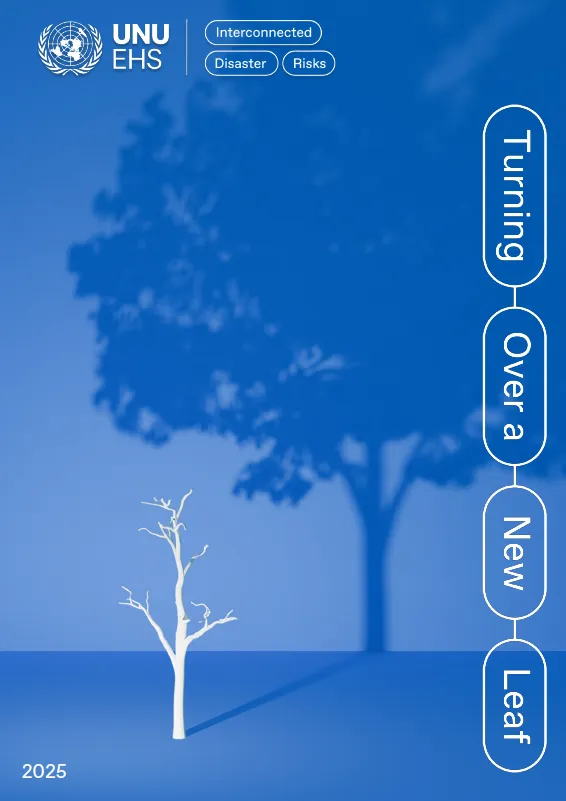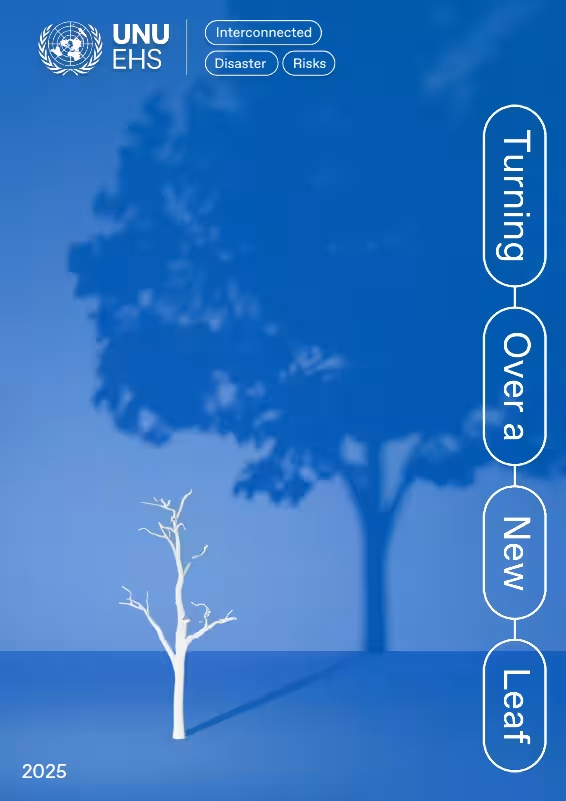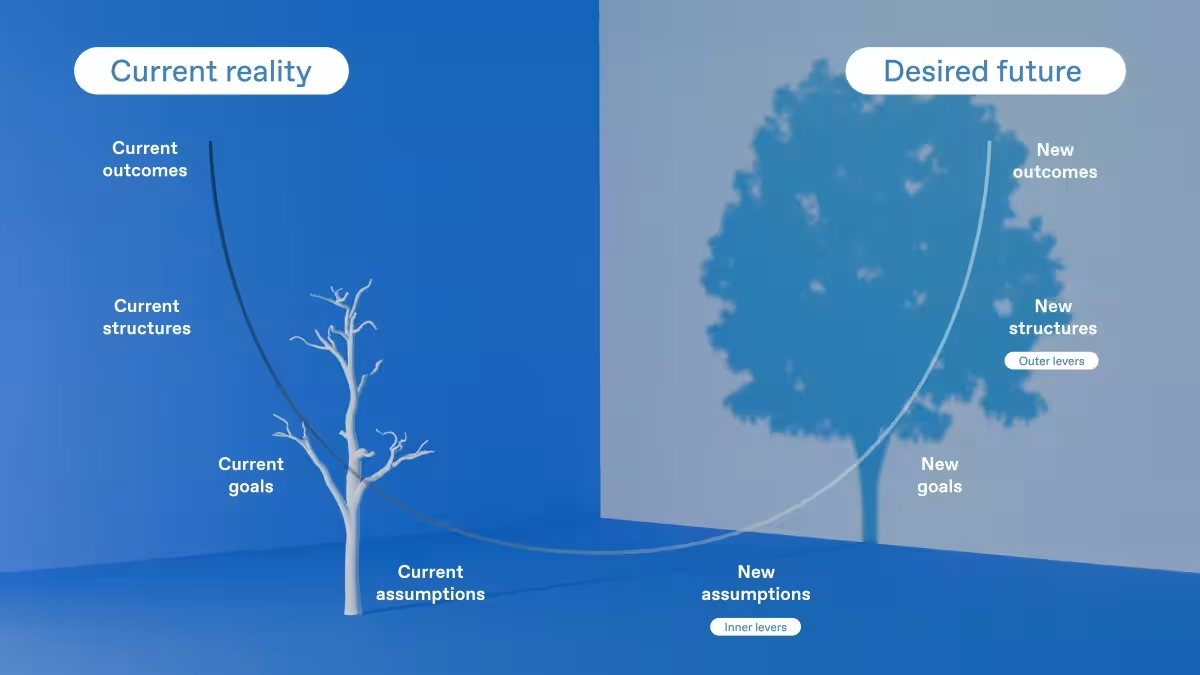

UNU-EHS Proposes Deep Change for a Sustainable Future in Latest Report
In a significant development for sustainable efforts worldwide, the United Nations University Institute for Environment and Human Security (UNU-EHS) has unveiled its latest report, "Interconnected Disaster Risks 2025: Turning Over a New Leaf." The 2025 edition marks a pivotal transition from merely identifying issues to proposing viable solutions to address pressing environmental challenges. One of the main inquiries that the report aims to answer is why, despite knowing how to tackle these issues, individuals and societies continue to falter in taking meaningful actions. By delving deep into the psychological barriers and incentives influencing human behavior, the report presents comprehensive analyses and positive examples of transformational change occurring globally.
This year's report builds upon the critical points identified in the previous edition, particularly the irreversible risk tipping points that were highlighted. It introduces five essential 'deep changes' as pathways for the future. The first of these changes, "Reassessing Waste: From Trash to Treasure," advocates for a transition to a circular economy that prioritizes durability, repair, and reuse. Highlighted as a successful example is Kamikatsu, a town in Tokushima Prefecture, Japan, which has implemented innovative waste management systems to achieve impressive results.
Another noteworthy change is the "Redefinition of Value: From Economic Prosperity to Planetary Health," encouraging a shift away from purely monetary considerations to perspectives that encompass happiness and ecosystem health. This paradigm shift mirrors Bhutan’s Gross National Happiness (GNH) concept, which emphasizes the balance between well-being and ecological sustainability.
Dr. Shen Xiaomei, Director of UNU-EHS, raised an important alarm: "Society is at a crossroads." For years, scientists have soundly warned us of the damage inflicted upon our planet and delineated paths to halt this trajectory. However, tangible actions have been disappointingly scarce. Despite the clear worsening of climate change, the consumption of fossil fuels continues to peak, highlighting a troubling disconnect between our awareness and our behaviors. As we stand at the brink of a waste management crisis, projections suggest that household waste will double by 2050. Time and time again, we are confronted with imminent dangers, yet we often continue on this precarious path, sometimes even striding towards the abyss, seemingly oblivious to the need for change.
Geeta Sevesbari, a co-author of the report and Deputy Director of UNU-EHS, commented on this paradox: "Change can be uncomfortable, but taking steps backward will not solve the rapidly evolving challenges we face in our world today." She emphasizes that the report aims to move beyond merely avoiding disasters or alleviating damage. Focusing solely on preventing the worst outcomes limits our potential. By confronting the root causes of problems and fostering global cooperation, we can cultivate the strength to create a world where future generations can not only survive but thrive. As she asserts, "Now is the time for new thinking and, ultimately, a fresh start."
The "Interconnected Disaster Risks" report is designed to be accessible to the general public while remaining firmly rooted in scientific evidence. Since its inaugural release in 2021, it has focused on various themes, shedding light on the underlying interconnections of contemporary global challenges and their potential solutions. For more information in Japanese, you can refer to the related resources here. The full report is available for download from the English-language website.


This year's report builds upon the critical points identified in the previous edition, particularly the irreversible risk tipping points that were highlighted. It introduces five essential 'deep changes' as pathways for the future. The first of these changes, "Reassessing Waste: From Trash to Treasure," advocates for a transition to a circular economy that prioritizes durability, repair, and reuse. Highlighted as a successful example is Kamikatsu, a town in Tokushima Prefecture, Japan, which has implemented innovative waste management systems to achieve impressive results.
Another noteworthy change is the "Redefinition of Value: From Economic Prosperity to Planetary Health," encouraging a shift away from purely monetary considerations to perspectives that encompass happiness and ecosystem health. This paradigm shift mirrors Bhutan’s Gross National Happiness (GNH) concept, which emphasizes the balance between well-being and ecological sustainability.
Dr. Shen Xiaomei, Director of UNU-EHS, raised an important alarm: "Society is at a crossroads." For years, scientists have soundly warned us of the damage inflicted upon our planet and delineated paths to halt this trajectory. However, tangible actions have been disappointingly scarce. Despite the clear worsening of climate change, the consumption of fossil fuels continues to peak, highlighting a troubling disconnect between our awareness and our behaviors. As we stand at the brink of a waste management crisis, projections suggest that household waste will double by 2050. Time and time again, we are confronted with imminent dangers, yet we often continue on this precarious path, sometimes even striding towards the abyss, seemingly oblivious to the need for change.
Geeta Sevesbari, a co-author of the report and Deputy Director of UNU-EHS, commented on this paradox: "Change can be uncomfortable, but taking steps backward will not solve the rapidly evolving challenges we face in our world today." She emphasizes that the report aims to move beyond merely avoiding disasters or alleviating damage. Focusing solely on preventing the worst outcomes limits our potential. By confronting the root causes of problems and fostering global cooperation, we can cultivate the strength to create a world where future generations can not only survive but thrive. As she asserts, "Now is the time for new thinking and, ultimately, a fresh start."
The "Interconnected Disaster Risks" report is designed to be accessible to the general public while remaining firmly rooted in scientific evidence. Since its inaugural release in 2021, it has focused on various themes, shedding light on the underlying interconnections of contemporary global challenges and their potential solutions. For more information in Japanese, you can refer to the related resources here. The full report is available for download from the English-language website.


Topics Policy & Public Interest)










【About Using Articles】
You can freely use the title and article content by linking to the page where the article is posted.
※ Images cannot be used.
【About Links】
Links are free to use.